Join our Ageing well event on Monday 30 June. Booking now open!
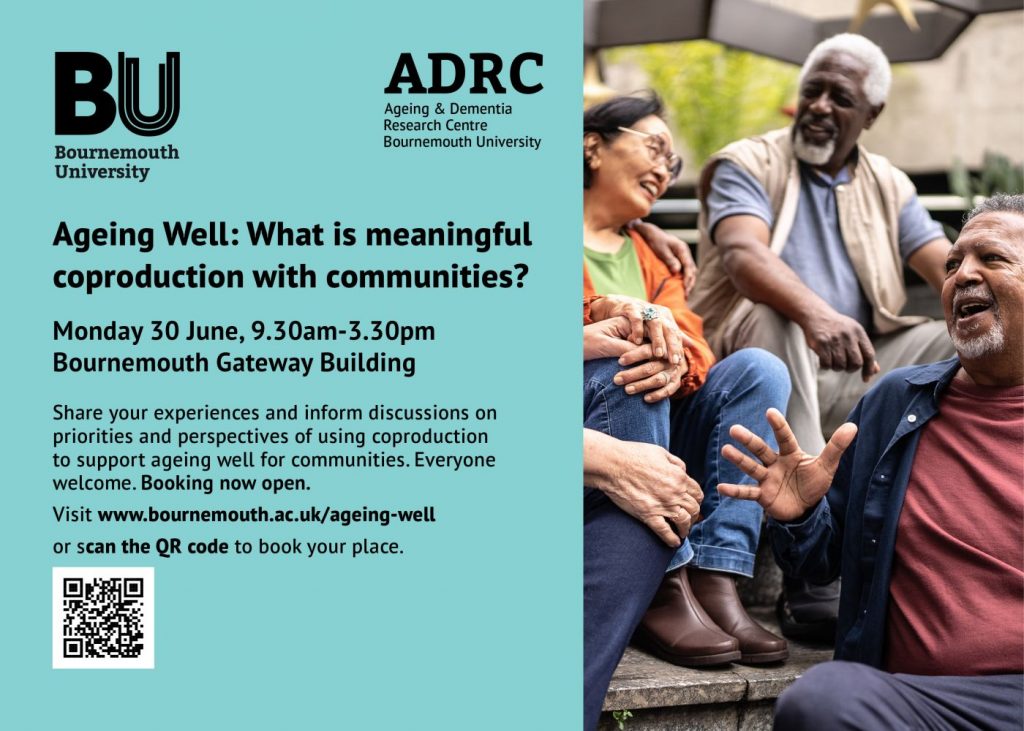
Latest research and knowledge exchange news at Bournemouth University

Today ResearchGate announced that the paper ‘The Interdisciplinary Research Team not the Interdisciplinarist’ [1] has been read 3,000 times. The paper, with psychologist Dr. Shanti Farrington (previously Shanker) as lead author, was written with colleagues from (a) the Faculty of Health & Social Sciences, namely Dr. Pramod Regmi and Prof. Edwin van Teijlingen; (b) the NHS, Ms. Jillian Ireland, Professional Midwifery Advocate in University Hospitals Dorset NHS Foundation Trust; (c) the University of Huddersfield, namely Prof. Padam Simkhada, who is also Visiting Professor at BU; and (d) the University of Greenwich, in the person of Dr. Sharada P. Wasti (previously based at the University of Huddersfield).
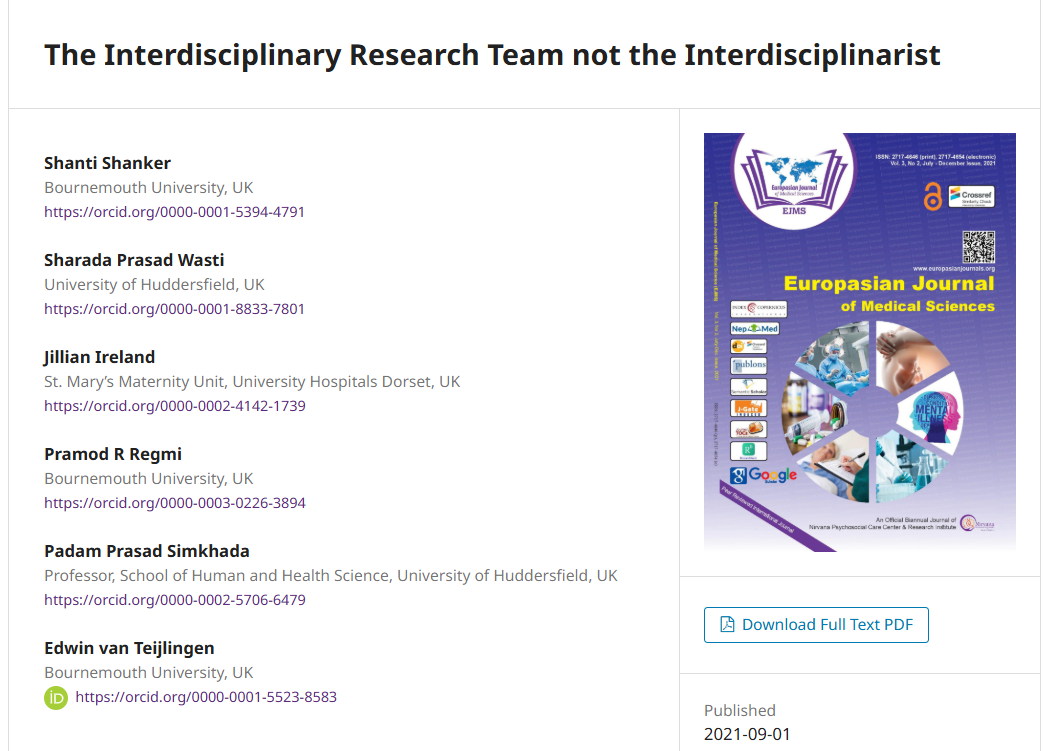 This methods paper addresses some of the pitfalls and barriers to being an interdisciplinary researcher. Being involved in interdisciplinary research is not an easy option for an individual discipline expert. It requires individual skills, ability to see beyond one’s discipline and perhaps personality characteristics such as a great team player. Interdisciplinary research may involve a mixed-methods approach underpinned by conflicting, and according to some, incommensurable research philosophies.
This methods paper addresses some of the pitfalls and barriers to being an interdisciplinary researcher. Being involved in interdisciplinary research is not an easy option for an individual discipline expert. It requires individual skills, ability to see beyond one’s discipline and perhaps personality characteristics such as a great team player. Interdisciplinary research may involve a mixed-methods approach underpinned by conflicting, and according to some, incommensurable research philosophies.
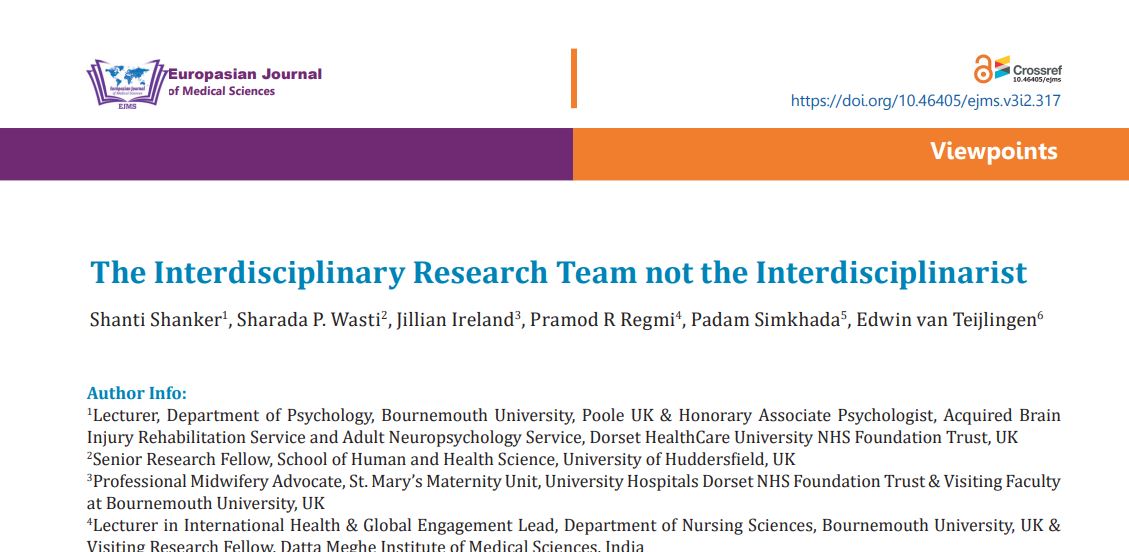 This paper on working interdisciplinary is part of a suit of academic papers on the topic written by some of the same authors [2-3]. All papers are fully open access and hence freely accessible across the globe to anyone with an internet connection.
This paper on working interdisciplinary is part of a suit of academic papers on the topic written by some of the same authors [2-3]. All papers are fully open access and hence freely accessible across the globe to anyone with an internet connection.
References:
Professor Huseyin Dogan was honoured with both the Best Service Award and the Best Paper Award at the 2025 IEEE International Conference on Artificial Intelligence held in Silicon Valley, USA. This recognition highlights the importance of Human-Centred AI and Professor Dogan’s valuable contributions to the area.
Professor Dogan travelled to Silicon Valley in May 2025, supported by funding from Google, USA, to lead a special track focused on Human-Centred AI. The track included 24 paper presentations and addressed the crucial need for ethical considerations in the development and application of both autonomous and collaborative Human Centred AI systems.
The conference organisers stated that “these honours are a testament to Prof Dogan’s outstanding contributions and dedication to the field.”
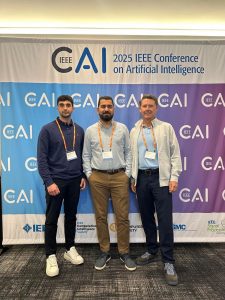
Bournemouth University’s commitment to shaping the future of User Experience (UX) and Human-Centred AI extends beyond this prestigious conference. Professor Dogan also recently led a highly anticipated workshop at CHI 2025 in Yokohama, Japan, on “Defining a User Experience Research Point of View” also funded by Google. The ACM Conference on Human Factors in Computing Systems (CHI) is globally recognised as the premier international forum for research in human-computer interaction.
This influential CHI workshop was a collaborative effort, organised alongside leading experts in the field: Stephen Giff (Google, USA), Renée Barsoum (Admiral, UK), Elizabeth Churchill (MBZUAI, formerly of Google and the ACM), and Alan Dix (Swansea University, Wales, UK). The participation of such prominent figures highlights the significance of the topic and BU’s contribution to the international research community.
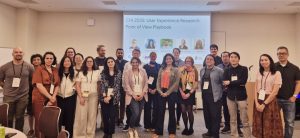
These recent successes highlight Bournemouth University’s growing influence in the critical field of Human-Centred AI and User Experience research. Through international collaborations and impactful engagement at leading conferences like IEEE AI and CHI, the university is actively contributing to the discussion around developing AI systems that are both effective and aligned with human values.
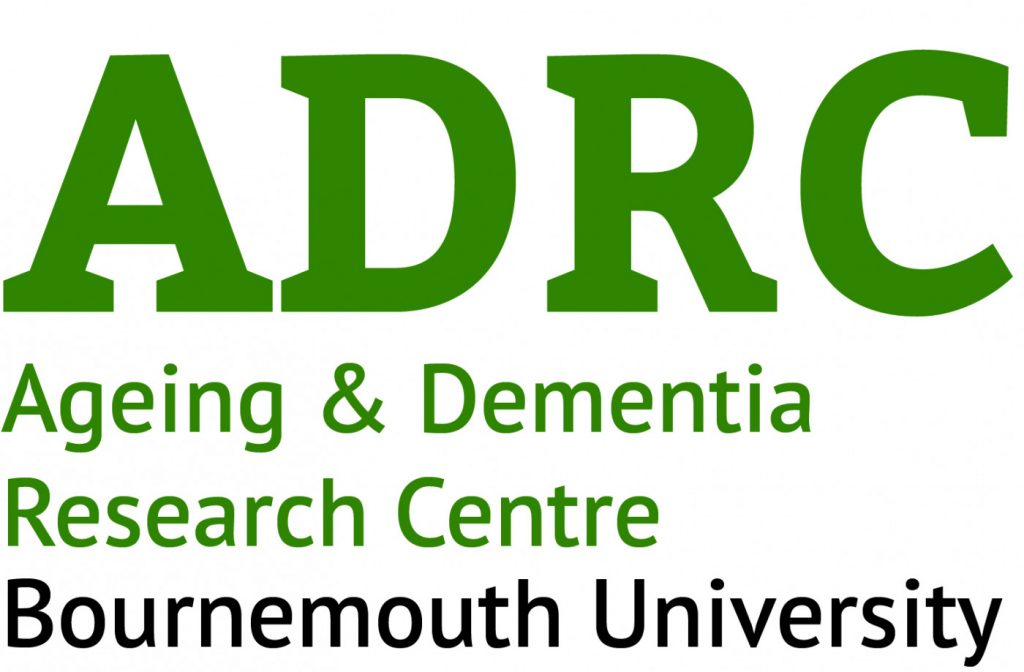
Some people in academia (and many outside it) don’t appreciate the importance of PhD supervision . An academic supervising PhD students is not merely for the educational purposes, or in other words, for the benefits of the postgraduate student. The value of postgraduate supervision lies in pushing the boundaries of knowledge, about testing new ideas, new approaches or even new methods.
Interestingly, enough it means that PhD supervision for an academic is also about developing their own ideas, expanding one’s CV, and developing one’s career. Whilst for the university it is also for the wider benefit of research for the wider society. The latter means that PhD students help improve the REF (Research Excellence Framework) scores for a university, through metrics such as number and proportion of PhD completions, but also through papers based on PhD research co-authored with staff. It always amazes me how some outsider regard PhD supervision as simply more of the same, i.e. not that different from supervising an undergraduate student.
Looking at my ow CV, some of my best papers have been co-written with PhD students, including my most cited paper on SCOPUS [1]. Moreover, as the graph of my h-index [checked SCOPUS for May 19th 2025] shows four of my top eight highest cited papers were co-authored with postgraduate students [1-4]. Papers that would not have been written without the postgraduate student conducting knowledge-advancing research! 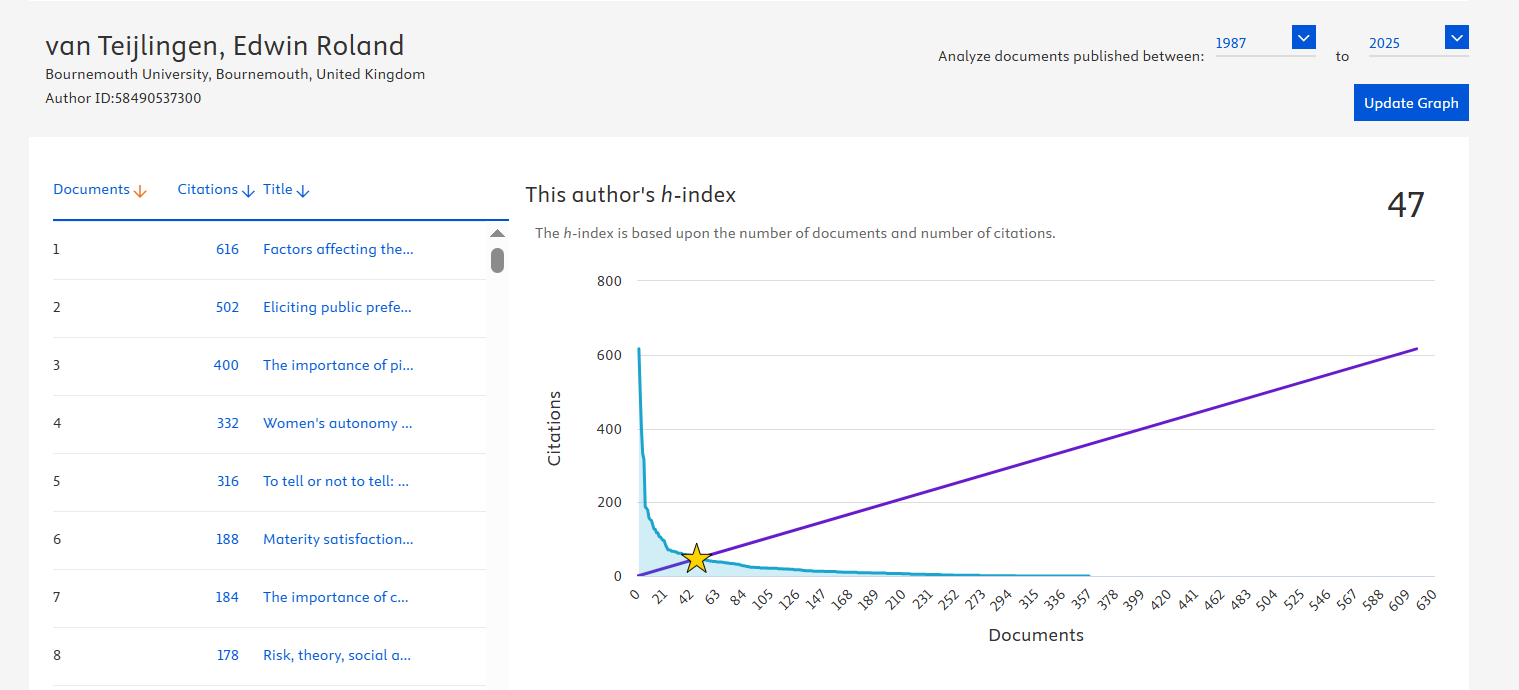
Not surprisingly, three of the four former PhD students who co-authored these highly-cited papers are now in academic positions across the UK (the fourth one has retired). These four highlighted papers are not just looking good on my CV, they are also highly ranked within their respective journals. The first paper [1] is the 28th most cited paper in the Journal of Advanced Nursing, an impressive 28th position out of 12,762 articles ever published by this international journal. Similarly, the paper ‘Women’s autonomy in decision-making for health care: Demographic study in Nepal’ [2] is the 10th most cited paper in Reproductive Health, whilst ‘ To tell or not to tell: Barriers and facilitators in family communication about genetic risk’ [3] is the 20th most article in Clinical Genetics. Last, but not least, ‘Risk, Theory, Social & Medical Models: critical analysis of the concept of risk in maternity care’ [4] is the 17th most cited article (out of 3,910) in the international journal Midwifery.
Prof. Edwin van Teijlingen
Centre for Midwifery & Women’s Health
References:
This vital initiative aims to make a tangible difference in the lives of mothers and babies by tackling the complex factors that contribute to disparities in maternity care and outcomes.
MIHERC is already actively engaged in shaping the discourse around these critical issues. The team has commenced the organisation and chairing of impactful events, including the upcoming Artificial Intelligence for Maternity and Women’s Health and Wellbeing session at the International Conference on Artificial Intelligence in Healthcare (AIiH 2025). Further details about this exciting session can be found here: https://aiih.cc/maternity-and-women-health-wellbeing/.
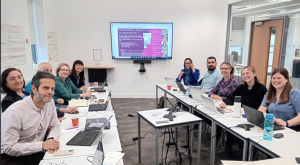
The whole team at Bournemouth University 08.01.25
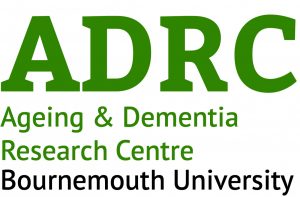



Developed in collaboration with students, staff, healthcare professionals, carers and individuals living with dementia, this resource has been designed as an educational tool for hospital staff and is full of useful information, advice and exercises to aid reflection and learning on how to best care for people living with dementia.
https://issuu.com/bournemouthuniversity/docs/insight_dementia_going_into_hospital_staff_resou
Fullscreen
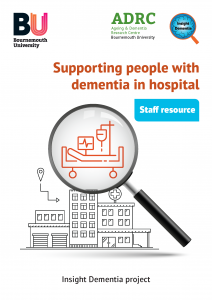
![]() The 2025 NIHR Global Health Research Academy Member event will take place on Tuesday 13th and Wednesday 14th May. The NIHR recognizes that career progression is a common challenge for early-career researchers. This year the event’s theme is ‘Empowering Early-Career Researchers: Navigating Careers in Global Health’. This two-day online event aims to equip participants from across the globe with the skills and knowledge to navigate and build a career in global health research.
The 2025 NIHR Global Health Research Academy Member event will take place on Tuesday 13th and Wednesday 14th May. The NIHR recognizes that career progression is a common challenge for early-career researchers. This year the event’s theme is ‘Empowering Early-Career Researchers: Navigating Careers in Global Health’. This two-day online event aims to equip participants from across the globe with the skills and knowledge to navigate and build a career in global health research.
 Bournemouth University staff and students participating in the NIHR Research and Innovation for Global Health Transformation Call 4: Drowning Prevention for newly mobile infants under 2 years in Bangladesh programme have been invited. This NIHR-funded project is called Sonamoni and BU’s student Md. Shafkat Hossain, whose PhD assessed the work in Bangladesh, is one the participants, as is our colleague from Bangladesh Notan Dutta. In the afternoon BU’s Edwin van Teijlingen who will be chairing a session on ‘Funding & Grant Writing’.
Bournemouth University staff and students participating in the NIHR Research and Innovation for Global Health Transformation Call 4: Drowning Prevention for newly mobile infants under 2 years in Bangladesh programme have been invited. This NIHR-funded project is called Sonamoni and BU’s student Md. Shafkat Hossain, whose PhD assessed the work in Bangladesh, is one the participants, as is our colleague from Bangladesh Notan Dutta. In the afternoon BU’s Edwin van Teijlingen who will be chairing a session on ‘Funding & Grant Writing’.
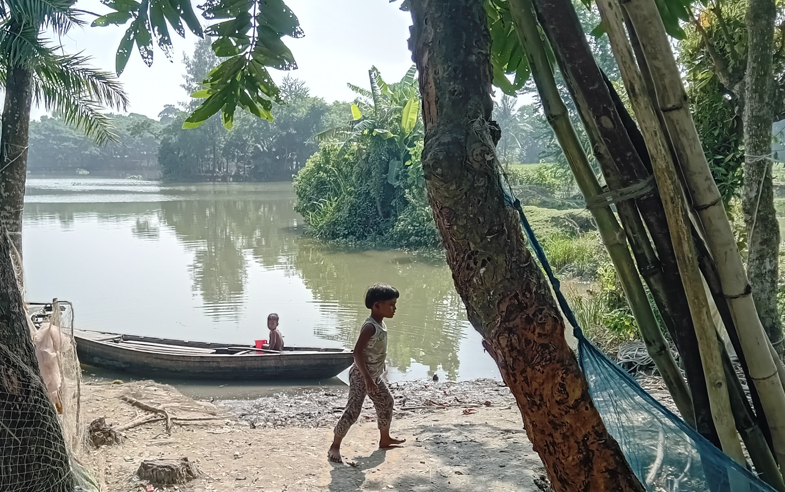 Sonamoni is being coordinated by Bournemouth University in collaboration with the Centre for Injury Prevention and Research (CIPRB) in Bangladesh as well as the University of the West of England, Bristol, the University of Southampton, Design Without Borders (DWB) in Uganda, and the Royal National Lifeboat Institution (RNLI). This project, with Prof. Dr. Aminur Rahman (at CIPRB) as Bangladesh lead, includes the above mentioned BU-based PhD project. The interdisciplinary team at Bournemouth University covers three faculties through: Dr. Mavis Bengtsson, Dr. Kyungjoo Cha, Dr. Mehdi Chowdhury, Dr. Yong Hun Lim, Mr. John Powell, and Prof. Edwin van Teijlingen.
Sonamoni is being coordinated by Bournemouth University in collaboration with the Centre for Injury Prevention and Research (CIPRB) in Bangladesh as well as the University of the West of England, Bristol, the University of Southampton, Design Without Borders (DWB) in Uganda, and the Royal National Lifeboat Institution (RNLI). This project, with Prof. Dr. Aminur Rahman (at CIPRB) as Bangladesh lead, includes the above mentioned BU-based PhD project. The interdisciplinary team at Bournemouth University covers three faculties through: Dr. Mavis Bengtsson, Dr. Kyungjoo Cha, Dr. Mehdi Chowdhury, Dr. Yong Hun Lim, Mr. John Powell, and Prof. Edwin van Teijlingen.

Dementia is a condition which is increasing amongst the general population, and furthermore, military veterans may experience increased exposure to risk factors for developing dementia, including military-related trauma, traumatic brain injury, and post-traumatic stress disorder. Despite growing dementia prevalence, significant barriers remain to accessing specialised care meeting veterans’ needs.



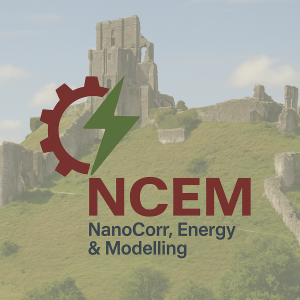 Coating Innovation for Tough Environments
Coating Innovation for Tough EnvironmentsAt Bournemouth University, Professor Zulfiqar Khan and his team at the NanoCorr, Energy & Modelling (NCEM) research group have long been developing innovative nanocoating technologies. These ultra-thin coatings are designed to protect materials from damage caused by high temperatures, pressure, corrosion, and wear.
Their work is especially relevant to industries like energy, transport, and manufacturing—where equipment is pushed to the limit every day. By improving the durability and energy efficiency of such systems, these coatings can reduce costs and environmental impact.
A recent publication by the team, featured on PubMed Central (https://pmc.ncbi.nlm.nih.gov/articles/PMC9788522/), explores how carefully designed nanocomposite coatings can provide long-term protection while remaining environmentally responsible. The research highlights the team’s expertise in tribology (the science of wear and friction), materials science, and surface engineering.
This strong foundation in coatings and materials research has supported Professor Zulfiqar Khan and his team in addressing one of the biggest global health challenges of our time: antibiotic resistance.
In a separate study published on PubMed (https://pubmed.ncbi.nlm.nih.gov/34771863/), the team introduced a novel copper oxide (CuO) bionanocomposite that shows powerful antibacterial properties. What makes this research stand out is its simple, green production method—using CuO nanoparticles derived from bitter melon (Momordica charantia), combined with natural egg yolk phospholipids and glycerol.
This eco-friendly approach avoids the need for toxic chemicals or expensive metals like silver. The result is a stable, affordable, and highly effective material that can kill drug-resistant bacteria, including E. coli and S. aureus, at very low doses (minimum inhibitory concentration of just 62.5 µg/mL).
The fact that this work is published on PubMed—a leading platform hosted by the US National Library of Medicine—shows the international relevance and scientific quality of the research. Only peer-reviewed studies of high standard are included on PubMed, meaning this work by Professor Zulfiqar Khan and his team has been recognised as a significant contribution to global health.
Their findings come at a time when antimicrobial resistance is a growing threat. According to the World Health Organization (WHO), it’s one of the top 10 public health risks facing humanity.
This research opens the door to real-world applications—such as antimicrobial coatings for medical devices, tools for agriculture, or water purification systems. However, further work is needed to identify some of the unknown compounds in the material and to confirm long-term safety in living systems.
Whether protecting a turbine from corrosion or tackling bacteria that no longer respond to antibiotics, the work of Professor Zulfiqar Khan and his team combines advanced engineering with environmental and public health awareness. Their approach shows how expertise in nanocoatings and materials science can be applied to solve very different—but equally important—global challenges.
Yesterday, ResearchGate alerted us that the paper ‘Midwives’ views towards women using mHealth and eHealth to self-monitor their pregnancy: A systematic review of the literature’ [1] had reached 40 citations! This paper has four Bournemouth University (BU) authors and one author, Prof. Gary Smith, who was FHSS Visiting Professor at the time of publication. This literature review, published in 2020, sought midwives’ perspectives on women self-monitoring their pregnancy using eHealth and mHealth.
 The paper fund that midwives generally held ambivalent views towards the use of eHealth and mHealth technologies in antenatal care. They acknowledged the potential benefits of such technologies, such as their ability to modernise antenatal care and to help women make more informed decisions about their pregnancy. However, midwives were quick to point out the risks and limitations of these, such as the accuracy of conveyed information, and negative impacts on the patient-professional relationship.
The paper fund that midwives generally held ambivalent views towards the use of eHealth and mHealth technologies in antenatal care. They acknowledged the potential benefits of such technologies, such as their ability to modernise antenatal care and to help women make more informed decisions about their pregnancy. However, midwives were quick to point out the risks and limitations of these, such as the accuracy of conveyed information, and negative impacts on the patient-professional relationship.
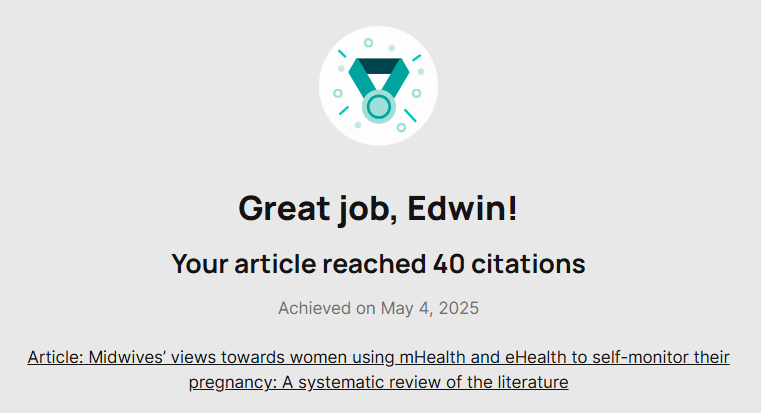 This paper will contribute to our recently awarded NIHR funding to tackle inequalities in UK maternal healthcare as part of the NIHR Challenge Call: Maternity Disparities Consortium. Profs Vanora Hundley and Edwin van Teijlingen from the Centre for Midwifery and Women’s Health, and Prof. Huseyin Dogan and Dr. Deniz Cetinkaya from the Department of Computing and Informatics collaborate in MIHERC (Maternal & Infant Health Equity Research Centre). MIHERC is led by Prof. Hora Soltani at Sheffield Hallam University, and it is a partnership with Bournemouth University, the City of Doncaster Council and South Yorkshire Digital Health Hub as well as several charities and voluntary organisations. Prof. Dogan has recently been appointed the co-lead for the “Digital, data, monitoring, evaluation and implementation science” work stream of the NIHR Maternity Disparities consortium.
This paper will contribute to our recently awarded NIHR funding to tackle inequalities in UK maternal healthcare as part of the NIHR Challenge Call: Maternity Disparities Consortium. Profs Vanora Hundley and Edwin van Teijlingen from the Centre for Midwifery and Women’s Health, and Prof. Huseyin Dogan and Dr. Deniz Cetinkaya from the Department of Computing and Informatics collaborate in MIHERC (Maternal & Infant Health Equity Research Centre). MIHERC is led by Prof. Hora Soltani at Sheffield Hallam University, and it is a partnership with Bournemouth University, the City of Doncaster Council and South Yorkshire Digital Health Hub as well as several charities and voluntary organisations. Prof. Dogan has recently been appointed the co-lead for the “Digital, data, monitoring, evaluation and implementation science” work stream of the NIHR Maternity Disparities consortium.

Reference:
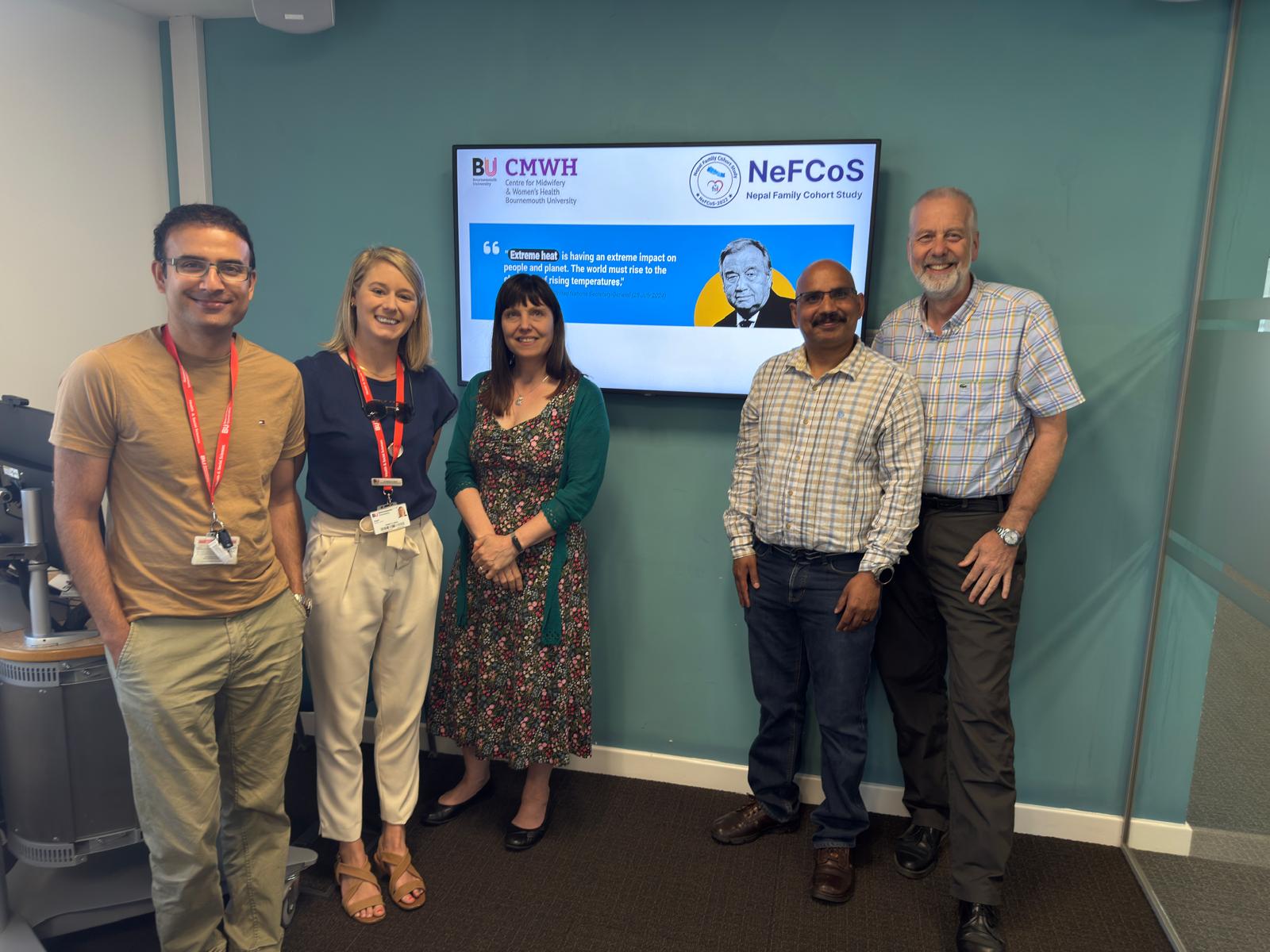 Prof. Om Kurmi who leads the Nepal Family Cohort Study (NeFCoS) joined the Bournemouth University (BU) team today for a research planning meeting in Bournemouth today. Dr. Om Kurmi, Associate Professor Research in the Centre for Healthcare and Communities at Coventry University. The BU team comprises Dr. Pramod Regmi (Principal Academic-International Health), Prof. Carol Clark (Professor in Physiotherapy), Prof. Edwin van Teijlingen (Professor of Reproductive Health), Dr. Rebecca Neal (Principal Lecturer in Exercise Physiology) and Dr. Vanora Hundley (Professor of Midwifery).
Prof. Om Kurmi who leads the Nepal Family Cohort Study (NeFCoS) joined the Bournemouth University (BU) team today for a research planning meeting in Bournemouth today. Dr. Om Kurmi, Associate Professor Research in the Centre for Healthcare and Communities at Coventry University. The BU team comprises Dr. Pramod Regmi (Principal Academic-International Health), Prof. Carol Clark (Professor in Physiotherapy), Prof. Edwin van Teijlingen (Professor of Reproductive Health), Dr. Rebecca Neal (Principal Lecturer in Exercise Physiology) and Dr. Vanora Hundley (Professor of Midwifery). 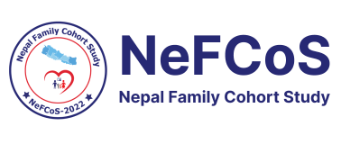
The Nepal Family Cohort Study (NeFCoS) is a multidisciplinary cohort study into the prevalence, incidence, and determinants of various diseases from childhood to adulthood in children and their parents [1]. NeFCoS has just started to collect date for the first round of follow-up.
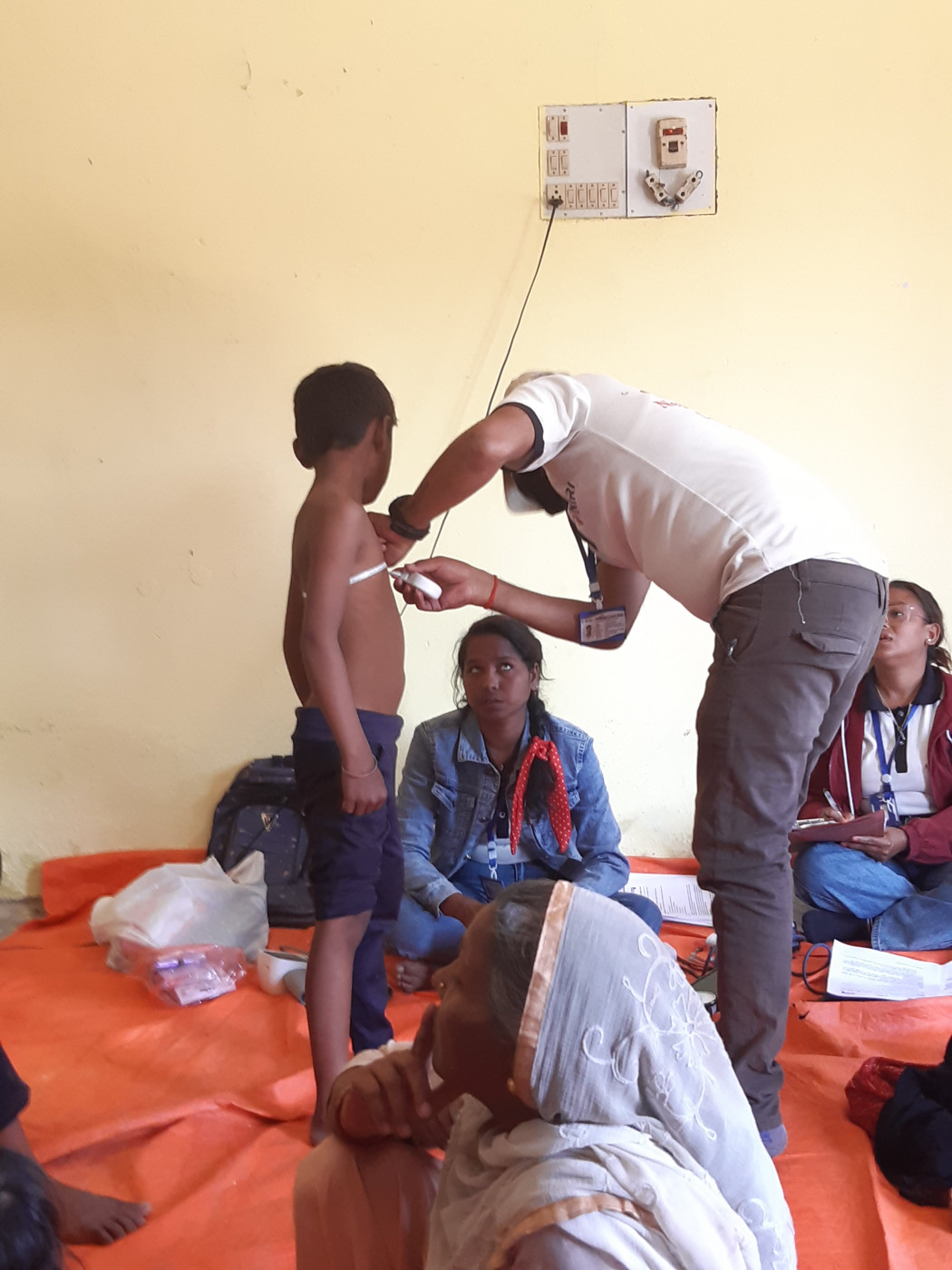 Today’s meeting was organised by Dr. Neal and supported by BU’s QR funds.
Today’s meeting was organised by Dr. Neal and supported by BU’s QR funds.
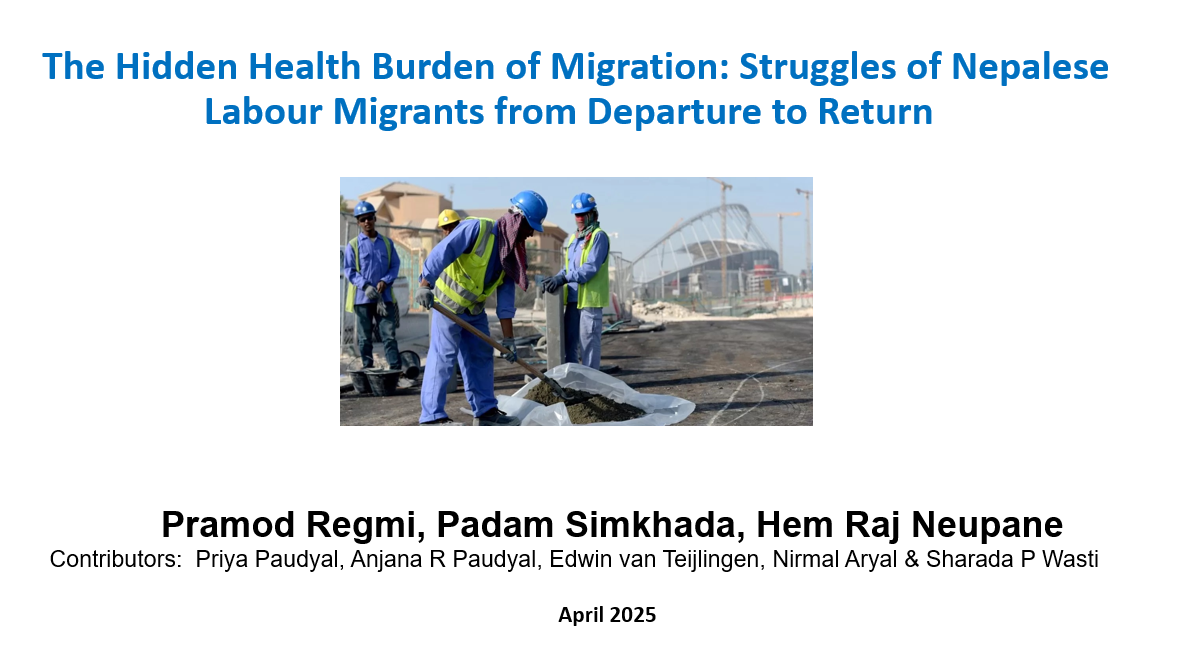 Last week, BU academic Dr. Pramod Regmi delivered a plenary talk on the struggles faced by Nepalese migrant workers from departure to return at the 22nd Britain-Nepal Academic Council (BNAC) Conference, held on 24–25 April in Liverpool. The session included two other panelists, including Prof. Padam Simkhada from the University of Huddersfield, he is also a BU Visiting Professor.
Last week, BU academic Dr. Pramod Regmi delivered a plenary talk on the struggles faced by Nepalese migrant workers from departure to return at the 22nd Britain-Nepal Academic Council (BNAC) Conference, held on 24–25 April in Liverpool. The session included two other panelists, including Prof. Padam Simkhada from the University of Huddersfield, he is also a BU Visiting Professor.
Dr. Regmi’s talk highlighted the health burden experienced by Nepali migrants throughout their migration journey. Labour migration from Nepal poses significant risks at all stages. Many aspiring migrants lack access to accurate information and support, while those from lower socioeconomic backgrounds face high documentation costs and illegal recruitment fees, affecting their mental health and placing strain on their families. Abroad, migrants often suffer exploitation, unsafe working conditions, overcrowded and unsanitary housing, limited access to healthcare, and high medical expenses. Female migrants face additional risks such as sexual violence, unintended pregnancy, exploitation, and unemployment. Upon return, especially for those who experienced abuse or trafficking, reintegration is hindered by social stigma and a lack of support services. Nepal’s weak economy further limits their ability to utilise skills gained abroad.
This presentation was informed by a long history of BU research into the health and well-being of Nepalese migrant workers, led by Dr. Regmi, Dr. Nirmal Aryal, Dr. Orlanda Harvey, Prof. Edwin van Teijlingen, and current PhD students Yagya Adhikari and Anjana Regmi Paudyal in the Faculty of Health & Social Sciences.
A round table discussion after the session focused on four questions:
Bournemouth University also contributed to two other presentations related to a project studying the impact of federalisation on Nepal’s health system. This study was funded by the UK Health Systems Research Initiative to examine the consequences of Nepal’s transition from a centralised political system to a federal structure in 2015. These two papers were presented by BU collaborators Prof. Julie Balen (Canterbury Christ Church University) and Ms. Amshu Dhakal (Manmohan Memorial Institute of Health Sciences, Kathmandu, Nepal).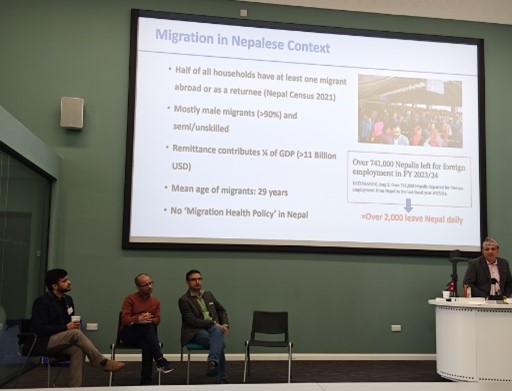
BU’s Dr. Regmi, Prof Edwin van Teijlingen and Dr Nirmal collectively have over 40 publications on Nepalese migrants’ health and well-being issues. Their recent publications on the topic include studies on modern slavery [1], kidney disease [2–4], pre-departure training of aspiring migrant workers in Nepal [5], moral panic and societal fears around migrant workers and COVID-19 [6–7], Nepalese migrant workers in Malaysia [8–9], left-behind families of migrant workers [10], migrant workers and the 2022 FIFA Men’s World Cup [11–12], Nepalese migrants in the UK [13], as well as a comprehensive literature review [14]. They are also a founder members of Health Research Network for Migrant Workers in Asia: www.hearmigrants.org

References:
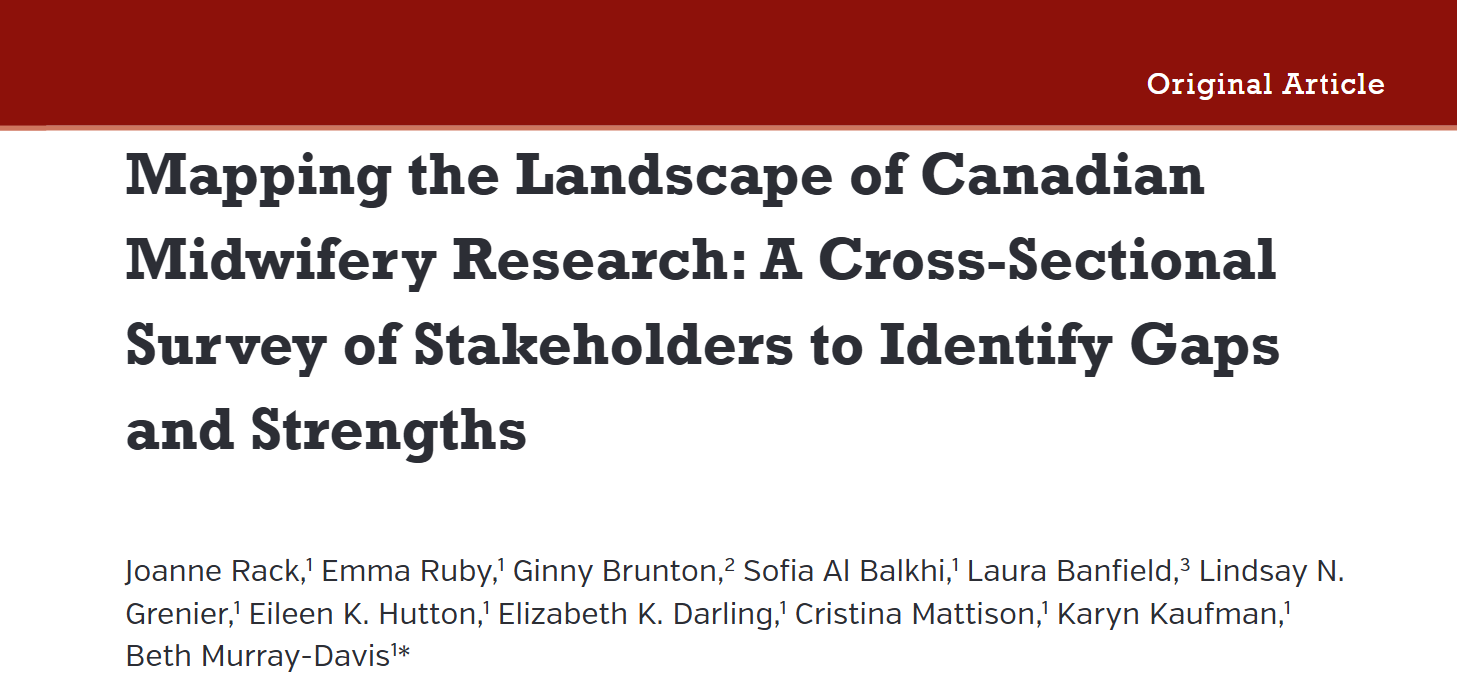 Congratulations to Joanne Rack, who is currently undertaking Bournemouth University’s four-year clinical doctorate, on the publication is week in the Canadian Journal of Midwifery Research and Practice. The latest paper “Mapping the Landscape of Canadian Midwifery Research” is Open Access and freely available online. The paper reports on a nation-wide study led by an inspiring team of midwifery researchers exploring the current landscape of midwifery research in Canada—identifying both its strengths and urgent gaps. With insights from over 200 stakeholders, this research calls for enhanced funding, mentorship, and research capacity to advance midwife-led, person-centered care.
Congratulations to Joanne Rack, who is currently undertaking Bournemouth University’s four-year clinical doctorate, on the publication is week in the Canadian Journal of Midwifery Research and Practice. The latest paper “Mapping the Landscape of Canadian Midwifery Research” is Open Access and freely available online. The paper reports on a nation-wide study led by an inspiring team of midwifery researchers exploring the current landscape of midwifery research in Canada—identifying both its strengths and urgent gaps. With insights from over 200 stakeholders, this research calls for enhanced funding, mentorship, and research capacity to advance midwife-led, person-centered care.
Profs. Vanora Hundley & Edwin van Teijlingen
Centre for Midwifery & Women’s Health
Reference: